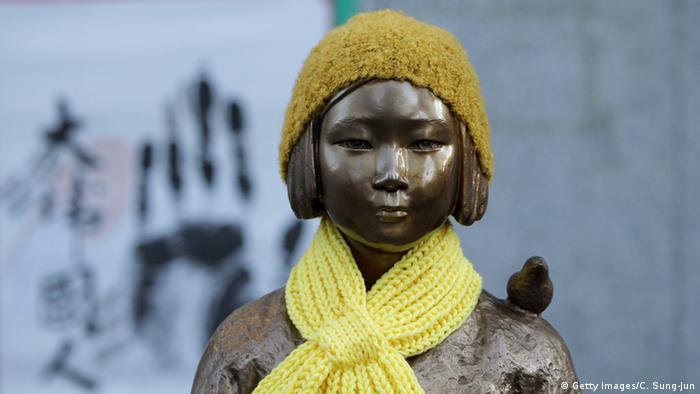
Japan-South Korea relations are plummeting. Following the recall of its envoy, Yasumasa Nagamine, last week to protest the establishment of the comfort woman statue outside its consulate in Busan, South Korea, the Japanese government also suspended ongoing negotiations on a currency swap, along with other high-level economic talks. These measures, meant to penalize South Korea’s failure to comply with the comfort women agreement reached in December 2015, have placed the two nations on the brink of breaking diplomatic relations.
“It is a matter of national credibility to implement [the agreement] even if the government changes,” Japanese Prime Minister Shinzo Abe said on Aug. 8. “Japan has already paid one billion yen, as we sincerely fulfilled our obligation. I think it’s now South Korea’s turn to show sincerity in an unwavering manner.” While the people of South Korea feel that the Japanese government is overreacting to the installation of the statue — given that private organizations are driving said installation — Japan has made it clear that there will be no improvement in relations until the statue is removed. This development doesn’t benefit either country. The New York Times published an editorial on Jan. 6 stating, “What is needed is recognition on both sides, and in Washington, that the December 2015 agreement cannot be allowed to collapse, along with a concerted effort to calm the waters.” The editorial also introduced the context of the comfort women agreement: “The tension between two countries that should be jointly confronting North Korea’s nuclear threat and China’s spreading influence prompted Washington to mediate an agreement in December 2015 in which Japan apologized and promised $8.3 million to care for the surviving women.”
South Korean diplomacy has its back to the wall. China is also pressuring us on all sides regarding the deployment of the Terminal High Altitude Area Defense missile defense system, creating a division of public opinion within our country. THAAD, a measure to protect against the North Korean nuclear threat, directly correlates to South Korea’s national security. It is also related to the defense of the United States Forces Korea and the Republic of Korea Armed Forces. In this context, it’s clear that any attempt to mess with THAAD will be received by the U.S. government as a serious diplomatic challenge. We need to keep in mind that our conflicts with both China and Japan are correlated to, and may jeopardize our alliance with, the United States. We South Koreans need to consider the consolidation of the U.S.-South Korea alliance our core priority. While Japan should not extend our historical conflicts to the economy or the private sector, South Korea also should not unnecessarily provoke Japan or make our relationship worse.

Leave a Reply
You must be logged in to post a comment.